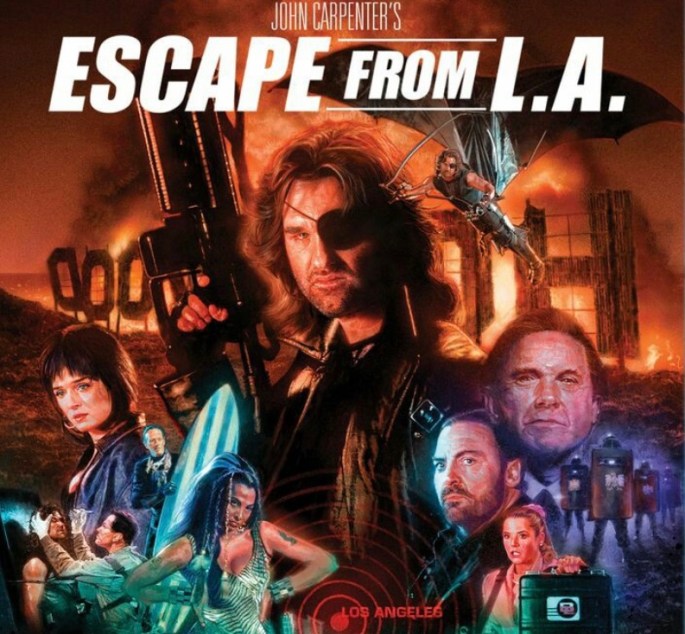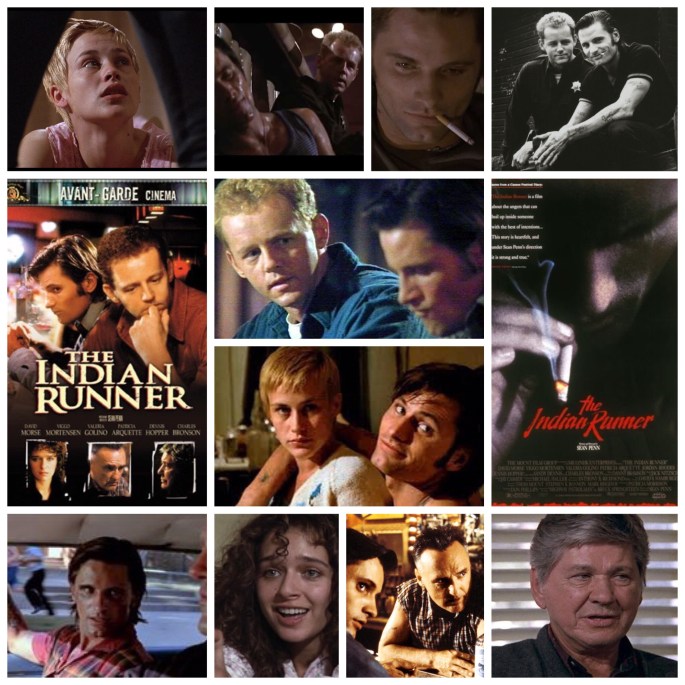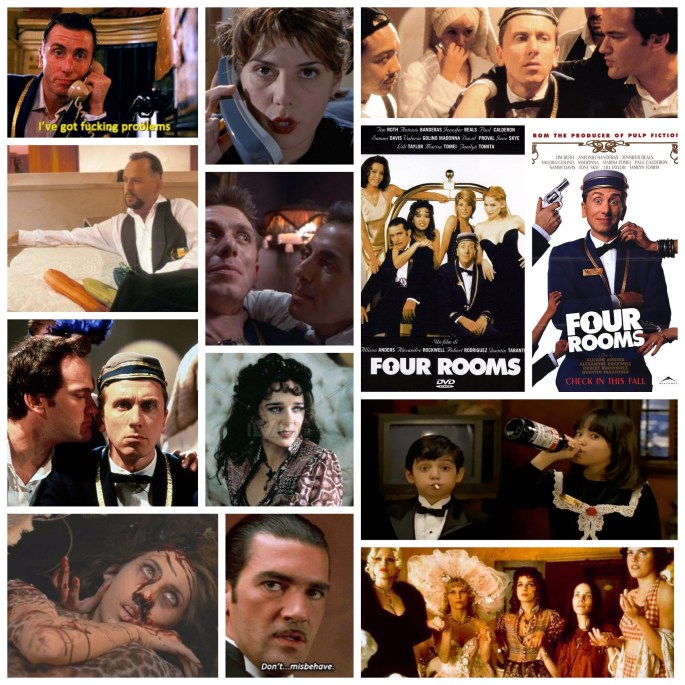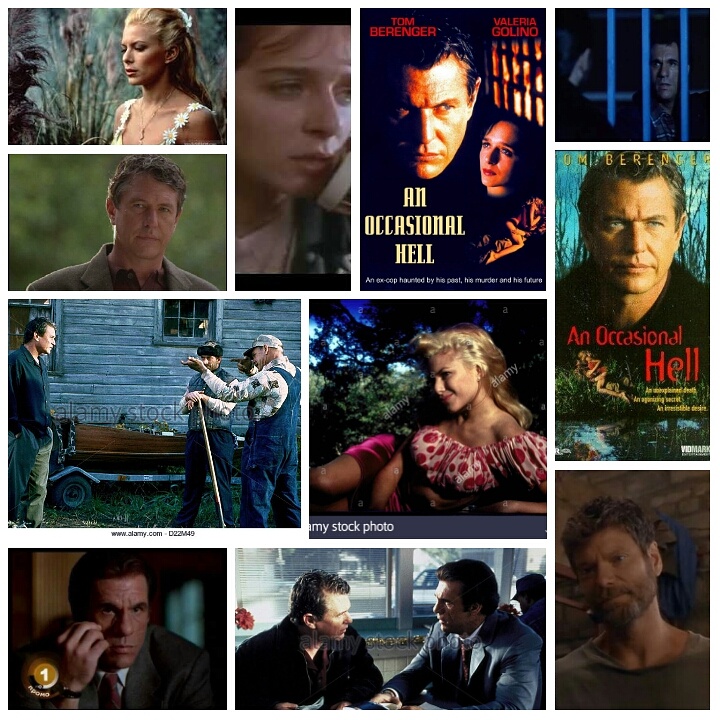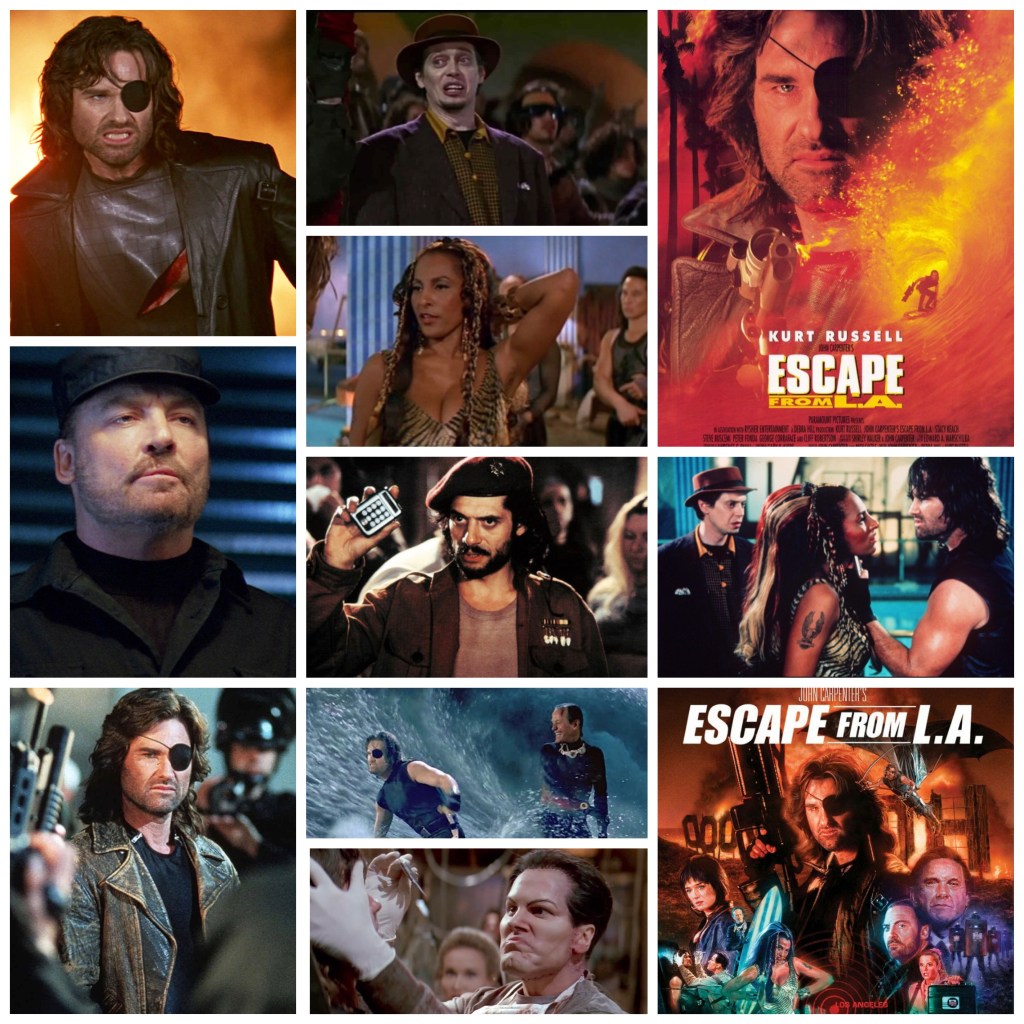
I don’t know about Escape From L.A., man. It’s kinda like when someone tells you a really funny joke and just tells it perfectly, and then somewhere down the line you’re like “tell that awesome joke again” and they do, but they just don’t quite encapsulate or get it right a second time and the magic goes sour. Escape From NY is that first time and this sequel… well let’s just say the magic was lost on me this time around. I get that John Carpenter wanted to expand the lore, his first film was definitely popular enough to warrant a sequel and Kurt Russell’s Snake Plissken for sure deserves many more films, but this… was just not a great time at the movies. Snake once again finds himself in a near identical predicament as the first film: infiltrate futuristic Los Angeles, now also a cordoned off no fly zone for dissidents, find and neutralize a Che Guevara clone (kind of a weak villain, I might add) with plans on rebel terrorism who is in cahoots with the daughter of the US president (Cliff Robertson) who is about as corrupt, evil and unscrupulous as you can get. So a ponytailed Stacy Keach handles his mission and he ventures into LA where he meets a motley gaggle of freaks, criminals and outliers including a renegade surfer (Peter Fonda), a twitchy guide (Steve Buscemi), a Botox saturated mad doctor (Bruce Campbell, but you’d only know by the voice) and more. Poor Pam Grier shows up as a gang commander but they’ve dubbed her voice over with a different dude to make her sound like a man, which was a huge WTF, like is the character supposed to be transgender or just fuckin really husky? There’s fights, shootouts, hang gliders, betrayals, but none of it happens with the sheer Grindhouse joy of the first film, and it all feels very strained, try-hard and disingenuous. Even Russell as Snake falters here and there, his whispery tough guy shtick that was SO effective in Escape from NY feeling a tad silly here. The obligatory final ‘fuck you’ Snake gets here is fun and appropriately cathartic but it’s too little too late after an entire film of subpar antics that just don’t cut it. Not impressed.
-Nate Hill
